IAA Joint Showcase Event
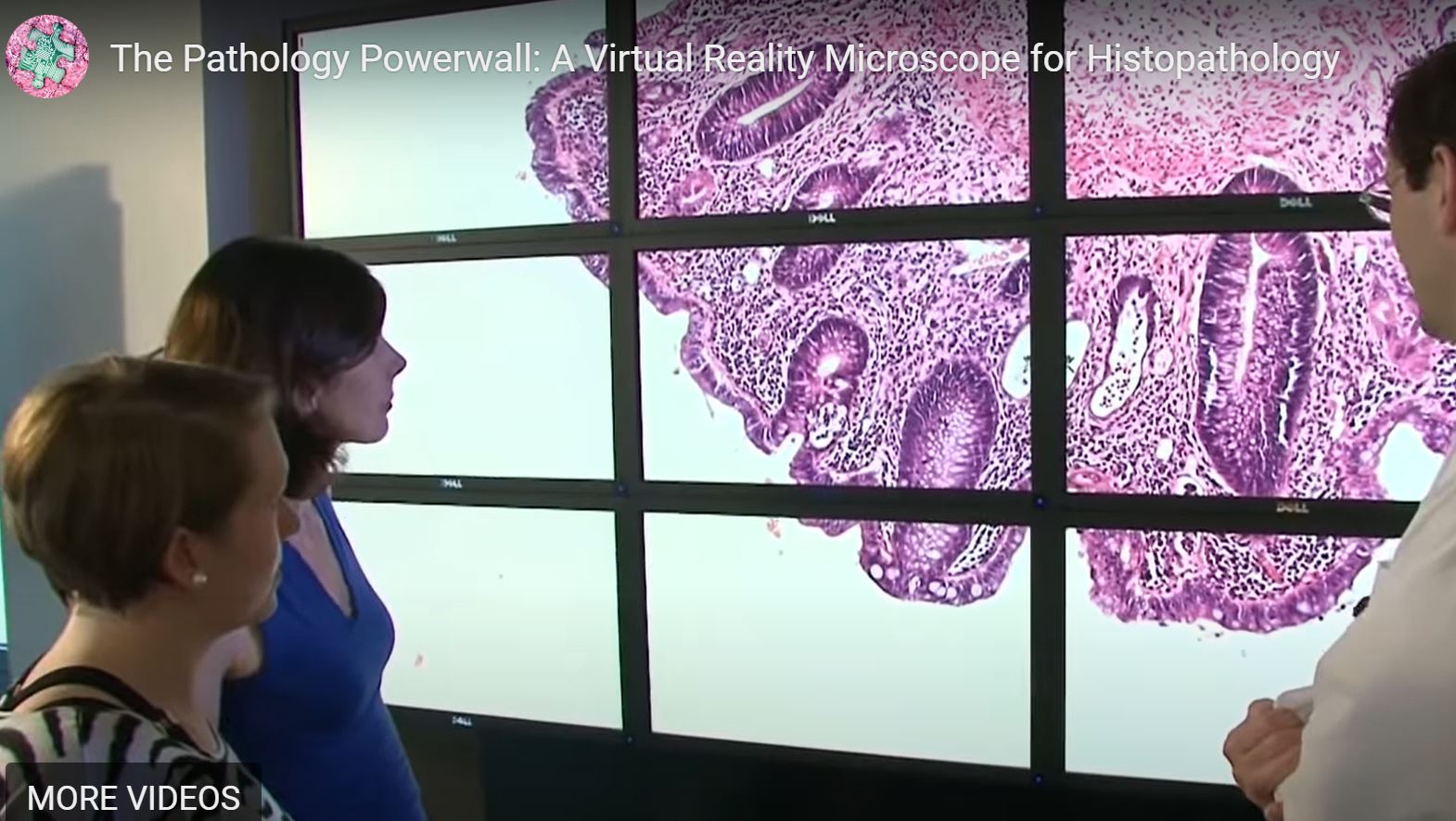
Leeds Social Sciences Institute (LSSI) joined forces with Research and Innovation Service (RIS) to hold a joint Showcase Event at The University of Leeds' prestigious Nexus venue.
Hosted by LSSI Director Professor Louise Waite, and RIS Translational Research Portfolio Manager Ruth Rayner, the event had a programme of presentations showcasing some of the fascinating research projects that have received UK Research and Innovation (UKRI) Impact Acceleration Account (IAA) funding to boost their impact.
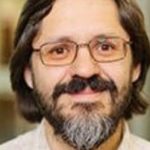
Kicking off the first session Professor Serge Sharoff from the School of Languages, Cultures and Societies discussed his project looking at understanding the misinformation chains in social media during the COVID-19 pandemic. The research was conducted in collaboration with NHS and Yorkshire & Humber Academic Health Sciences Network and explored links between the sharing of Covid-19 misinformation with a reader’s age and political orientation. The IAA funding enabled cooperation between artificial intelligence research and NHS communication teams.
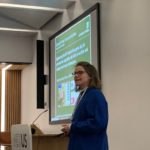 Dr Sally Moore, Lecturer in Nutritional Science from the Faculty of Environment is a Registered Dietitian (Health Professions Council) and a Registered Nutritionist (Public Health) (Association for Nutrition). Sally talked about the Fit Food Project which was boosted by IAA funding to bring together University of Leeds nutrition and medical academics and digital education practitioners alongside game-developers at Fit Talent Games a company based in Germany. An online game was developed with fun and engaging learning to promote knowledge acquisition and behavioural change relating to nutrition amongst game players. Outputs from the project will now be used with future funding, to evaluate the game within UK secondary schools and University programmes, as part of interventions which target healthy eating with young people and their families. @Sally_Dietitian
Dr Sally Moore, Lecturer in Nutritional Science from the Faculty of Environment is a Registered Dietitian (Health Professions Council) and a Registered Nutritionist (Public Health) (Association for Nutrition). Sally talked about the Fit Food Project which was boosted by IAA funding to bring together University of Leeds nutrition and medical academics and digital education practitioners alongside game-developers at Fit Talent Games a company based in Germany. An online game was developed with fun and engaging learning to promote knowledge acquisition and behavioural change relating to nutrition amongst game players. Outputs from the project will now be used with future funding, to evaluate the game within UK secondary schools and University programmes, as part of interventions which target healthy eating with young people and their families. @Sally_Dietitian
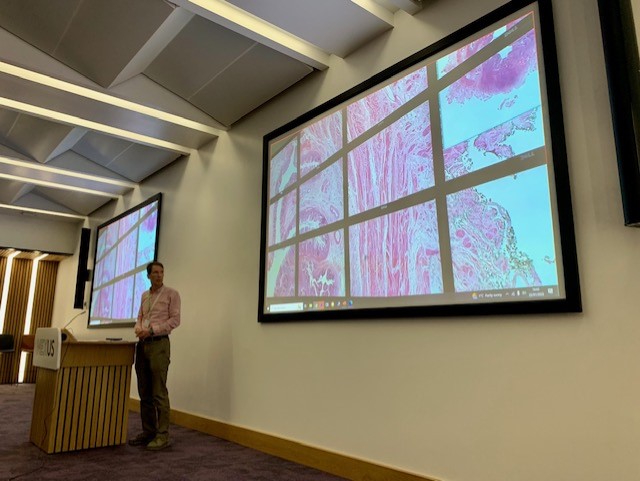
Continuing to demonstrate the diversity of subjects supported by IAA funding, Professor Roy Ruddle from the School of Computing followed with a look at a 12-year collaboration with pathologists at the Leeds Teaching Hospitals NHS Trust (LTHT). By developing the Leeds Virtual Microscope, doctors are now able to visualise and diagnose cancer from digital versions of tissue biopsies displayed on Powerwall and ultra-high definition displays. Cross disciplinary collaboration between medical and computer sciences allowed quicker, and life saving diagnosis.
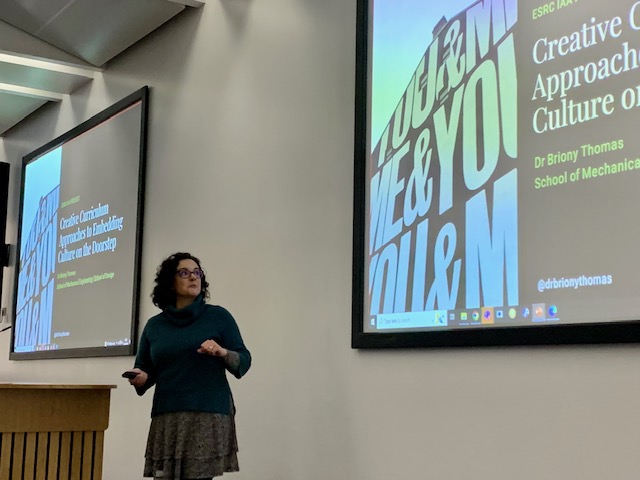
The first session of the Showcase Event concluded with a presentation by Dr Briony Thomas, who works within the Schools of Engineering and Design. IAA funding was used to boost place-based learning within the context of 15-minute neighbourhoods. Briony and her colleagues are supporting curriculum development in response to the 2019 Ofsted framework requirement for schools to demonstrate how they develop the cultural capital of every child, embracing the people, places, cultures and knowledge held within communities.
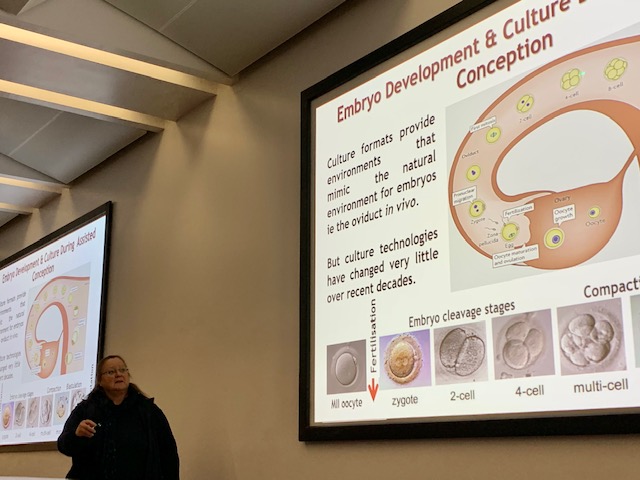
The second session began with Professor Helen Picton giving a talk on IVFmicro - microfluidic embryo culture to improve the success of assisted conception. As part of the Faculty of Medicine and Health, Helen described how working across disciplines with Dr Virginia Pensabene in the School of Electronic and Electrical Engineering has led to the design, fabrication and testing of a novel microfluidic culture device (IVFmicro) that recreates the micro-physiological environment of the mammalian oviduct in the lab with the aim of improving embryo health and development in vitro.
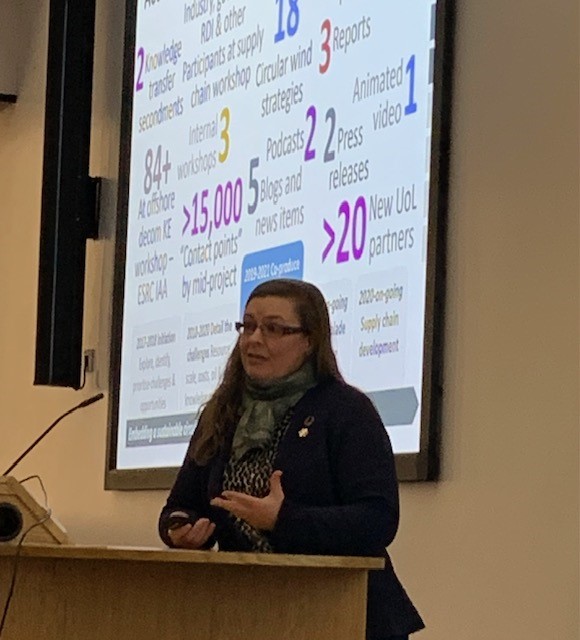
Dr Anne Velenturf, a Research Impact Fellow in Circular Economy, is based in the School of Civil Engineering. Anne explained how IAA funding enabled introducing the circular economy system to offshore wind farms has successfully integrated sustainable circular economic approaches into the design, development, operation and end-of-use management of offshore wind infrastructure. Anne said that "The University of Leeds is recognised as a leader in the wind industry, and this project has helped to put the circular economy on the map."
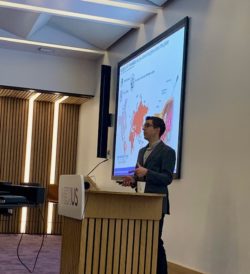
Our final speaker, Professor Peter Culmer, Professor of Healthcare Engineering, gave an insightful presentation on the development of novel surgical technologies for global health. By using a 'gasless' way of performing laparoscopic surgery using Gas Insufflation-Less Laparoscopic Surgery (GILLS), the Retractor for Abdominal Insufflation-less Surgery (RAIS) was designed as a more useable and affordable device to enable people in areas of low-resourced settings to access a more affordable, and safer surgery to enable shorter hospital stays and quicker recovery time. This interdisciplinary research was a collaboration between surgeons in the UK and India, mechanical engineers and an external design company. Receiving funding from the IAA has helped to tackle global health inequalities.
The event concluded with Louise Waite and Ruth Rayner summarising the Impact Acceleration Accounts at the University of Leeds and participants were given a copy of LSSI Impact Report 2021-2022.
If you would like to find out more about working with LSSI, please contact LSSI Manager Cheryl Harris – c.a.harris@leeds.ac.uk, or to find out more about the translational funding available through RIS, contact the IAA team iaa@leeds.ac.uk.
We would like to thank all of our speakers for their time and participation in the above event.
